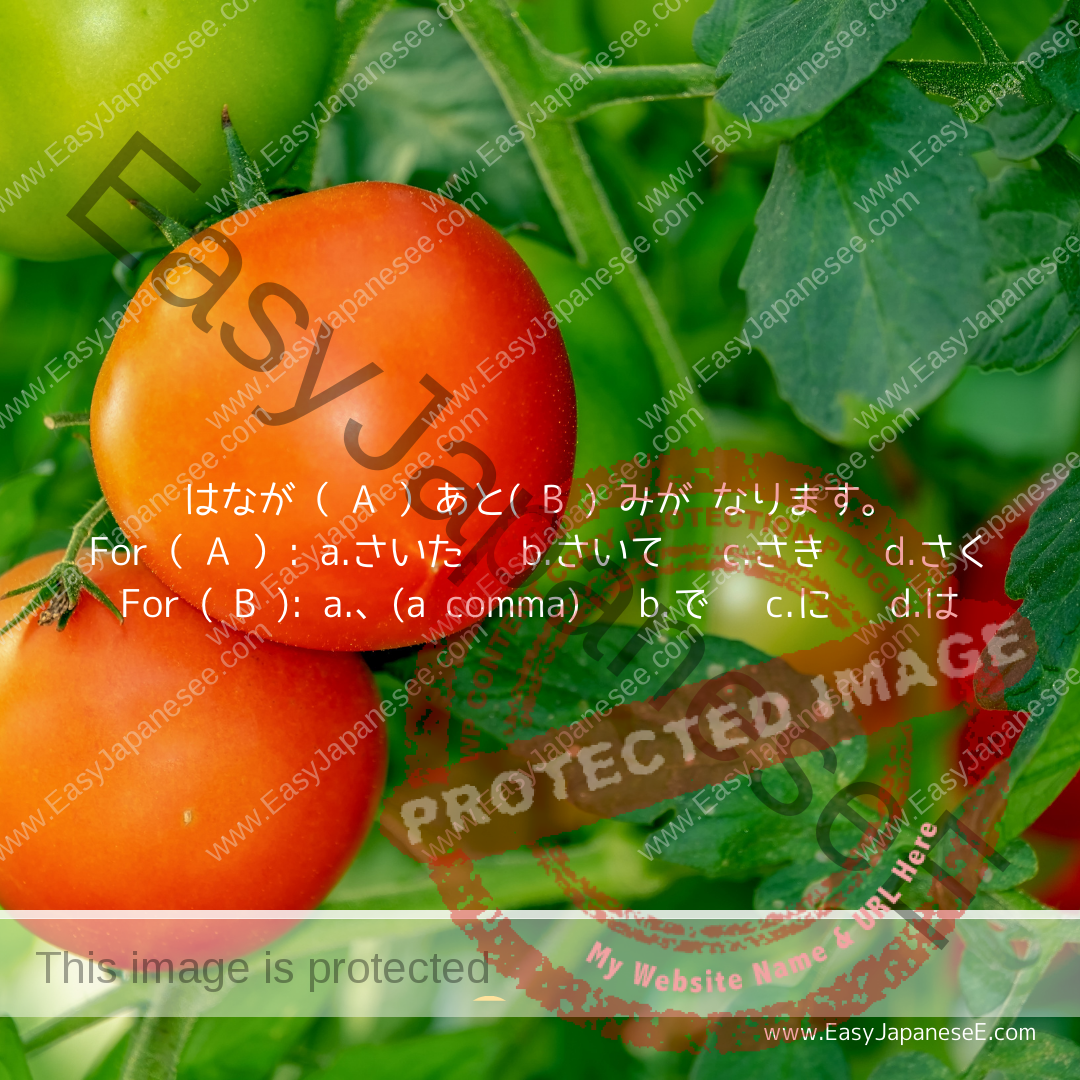はなが( A )あと ( B )みが なります。
For ( A ): a.さいた b.さいて c.さき d.さく
For ( B ): a.、(a comma) b.で c.に d.は
The intended meaning is: “After it blooms, it bears a fruit” and the correct answer for A is a.さいた. The most important thing to remember with 後(あと) is, the verb directly before 後(あと) has to be in the past plain form even if you are talking about a future event.
For B, all 4 answers are correct but the meanings are slightly different from one another.
~あと、 and ~あとで
a.花が咲いた後、実がなります。and
b.花が咲いた後で実がなります。
are about the same. 後、 and 後で are more about the order of events, so they are merely saying はながさく occurs first and みがなる occurs sometime after that.
~あとに
c. 花が咲いた後に実がなります is quite different. If に is used after 後, that shows either of the following 2:
- not only describes the order of events but also it suggests there is a “cause and effect” relationship between them. In this example, はながさく is the cause of みがなる.
or - the second action occurs almost immediately after the first. There is no other event happening between the 2 mentioned.
父が出かけた後に兄が帰ってきた。
My brother came home immediately after my father went out.夕食を食べた後にこの薬をのんでください。
Take this medicine after you eat dinner. (In this case, it would be OK to have a short break between the last bite and taking the medicine, but you should take the medicine before you start doing something else like washing up or watching TV.)
~あとは
d.花が咲いた後は実がなります。
The は in 後は is used to emphasize 花が咲いた後, so it’s more like “What happens after it blooms is that it bears fruit.”
は is a topic marker, so you can think “after flower opens” is the topic.
Quizzes
Reading the explanation above, can you tell the nuance difference between the following pairs?
A: 刺身を食べた後で気分が悪くなりました。
B: 刺身を食べた後に気分が悪くなりました。
Both are saying “I started to feel ill after eating sashimi” but while A is just describing the timing, B implies that I suspect sashimi was the cause of feeling ill.
C: 母が寝た後で父が帰ってきた。
D: 母が寝た後に父が帰ってきた。
Again, both are saying, “Mum went to bed and then Dad came home,” but while C is just describing the order of events, D sounds like there is something more to tell like “Mum missed out something” or “Dad had avoided seeing Mum” or something like that…
Please visit this page for more JLPT N4 Grammar items.
EasyJapaneseE’s Basic Grammar Exercise Modules
Following short modules are available for subscription! Click the name of a module for more information.

